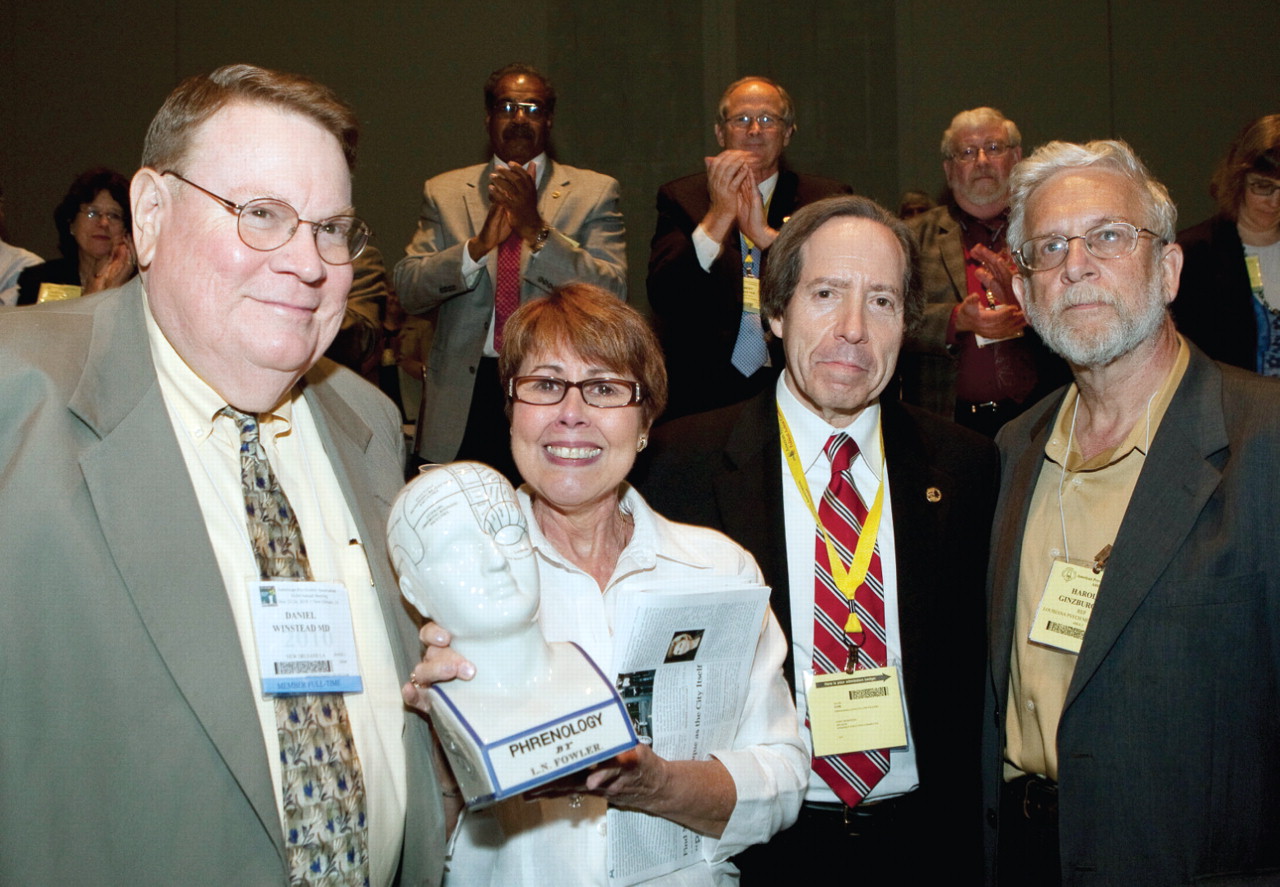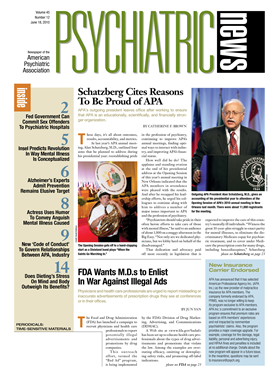An array of issues that could have a significant impact on patient care and the way that psychiatrists practice dominated last month's meeting of the APA Assembly in New Orleans, as representatives debated issues such as psychiatrists' relationship with industry and their ability to deliver care that is not compromised by third-party influence.
The Assembly passed, for example, an action paper calling on all training programs to discuss with residents and fellows issues concerning their relationship with industry and noted that these discussions “should include the nature of responsible physician-industry relationships in general and their potential advantages and disadvantages in patient care and research.” Also to be encouraged in these discussions is the importance of disclosing potential conflicts of interest.
Representatives also passed a proposed APA position paper on industry relationships that stated that APA “affirms that in all relationships between psychiatrists and industry, psychiatrists must endeavor to identify conflicts of interest and manage those conflicts to assure the highest standard of care for patients.” As with Assembly action papers addressing policy issues, this proposal must be approved by the Board of Trustees to become official APA policy.
Concerned about the lax federal monitoring of direct-to-consumer (DTC) pharmaceutical ads, the Assembly passed a resolution saying that APA “supports efforts to adequately regulate [DTC] advertising [and] encourages cooperation by pharmaceutical manufacturers for public education and prevention rather than the direct marketing of medications to consumers.”
Also regarding prescription drugs, the Assembly called for a ban on what it said is the profit-maximizing policy of some pharmacy benefit management companies to provide “incentives that require the provision of dangerous quantities of medications.” The representatives' concern stemmed from the delivering of “large quantities of medications by mail, with multiple refills, sufficient to supply medication for one year....” They want APA to support legislation or regulations that would prohibit these companies from rejecting prescription refills written for less than a 90-day supply “or such other minimum amount that may be clinically inappropriate” and from applying “punitive copayments” to small amounts of prescribed medications.
Another proposal that won Assembly backing urged APA to endorse legislation or regulations “that will authorize physicians to cancel or rescind renewals of their previously written prescriptions and that will mandate that pharmacies, including pharmacy benefit plans, implement procedures to permit physicians to cancel or rescind renewals ... and prevent such renewals from being filled or mailed to the patient when directed by the physician....”
In other actions, the Assembly voted to
•.
have APA oppose “discriminatory restrictions imposed by health plans” when psychiatrists bill for inpatient or outpatient services they code as evaluation and management. The representatives were concerned about reports that insurers were denying payment for such coded services when provided by psychiatrists, while they pay them for other types of physicians. This practice may, however, come to an end as a result of the federal parity law.
•.
establish a corresponding Assembly committee to make recommendations on how APA, through information technology, can more rapidly disseminate new clinical guidance than can now be done through the Association's publication of updates topractice guidelines.
•.
allow the Nevada Psychiatric Association to explore the possibility of scheduling an annual meeting in Las Vegas, a city in which APA has not held an annual meeting, and then consult with APA staff in developing a proposal for the Board of Trustees, which approves annual meeting sites. The next unbooked annual meeting dates are 2021 and 2022.
•.
ask the Board of Trustees to express APA's “outrage for the 26 psychiatric patients who died from cold exposure and neglect last January in the Havana Psychiatric Hospital [and] for the unfortunate death of political prisoner Orlando Zapata Tamayo from a hunger strike protesting the physical and psychological abuses to which he and all other political prisoners are subjected in Cuban prisons.”
The Assembly also heard a request from Carol Bernstein, M.D., who became APA president at the close of last month's annual meeting, to have each district branch and state association identify three issues that it believes are the most crucial for its members and in which APA has a role to play. Once these have been submitted, she plans to ask the Assembly Executive Committee to distill the list to 10 issues, which will then be discussed at the September Board meeting.
In addition, Ardis Dee Hoven, M.D., chair-elect of the AMA Board of Trustees, addressed the Assembly and thanked APA for its hard work and productive collaboration on the recently passed health care reform law and other critical issues being debated on Capitol Hill. Health reform “would have been a lousier piece of legislation,” she said, without the work of medical specialty organizations, the AMA, and state medical societies. While medicine in general did not get everything it wanted in a health care reform law, such as malpractice-liability reform and a fix for the Medicare reimbursement formula, a key lesson reinforced in the long legislative process is “don't let the perfect be the enemy of the good,” she stressed.



